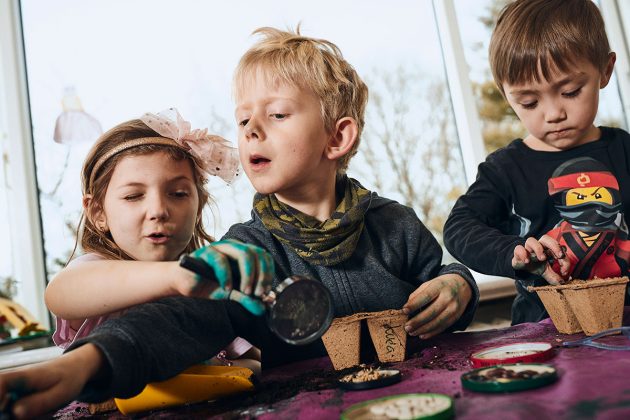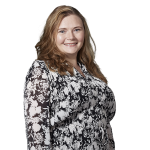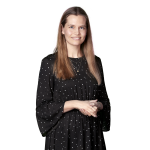In the spring call, the Novo Nordisk Foundation has supported nine projects on science education and informal learning environments.
The Niels Bohr Institute at the University of Copenhagen will give upper-secondary students in Denmark the opportunity to explore quantum phenomena through a learning and demonstration laboratory. The Danish Physics Teacher Association will develop a materials bank for teaching materials and the Day of Taste Association will promote understanding of science through cooking.
These are some of the projects the Novo Nordisk Foundation has supported in this spring’s funding round for natural science education and informal learning environments. Nine projects focusing on learning in school and elsewhere have received grants totalling DKK 20 million.
“At the Novo Nordisk Foundation, we want to develop science capital in Denmark by strengthening education and informal learning environments and contributing to the green transition. We are therefore incredibly pleased to support both new projects and ones we have previously supported that have shown good results. These projects very concretely stimulate children and young people’s interest in science. We are proud of this,” says Berith Bjørnholm, Senior Vice President, Education & Outreach, Novo Nordisk Foundation.
Projects embedded and further developed
The Foundation previously supported three of the projects receiving new grants, and these are now being embedded and further developed.
The first project is the Mobile Mathematics Service, which in the second phase will be made more sustainable by becoming embedded and further disseminated. The knowledge and experience obtained will help kindergarten teachers, early-childhood educators and schoolteachers in changing their practices in exploratory mathematics in a scientific perspective in their local environment.
The second project, Cirkus Naturligvis – the Next Generation, will also systematically disseminate science to young target groups. Students from the University of Copenhagen take the latest scientific research and make it relevant for children, who get to see scientific role models in action.
The third project, Grow Your Own Sustainable Protein, will enable primary and lower-secondary students to have unique hands-on experience with live animals. The children cultivate edible insects, following them from soil to table and to the soil again. The project enables a practice-based way of working with sustainability in which the children learn about both insects and climate and resource footprints.
See the full list of supported projects below.
New application round opened
The Foundation’s next application round for grants for natural science education and informal learning environments is open. The deadline for applications is 7 September 2022. In the new application round, the Foundation will award grants of DKK 2 million to DKK 6 million for projects of up to 6 years in duration. The total grant funding will be up to DKK 50 million.
In addition to the call for applications for grants for natural science education and informal learning environments, applications are open for projects to strengthen science, technology, engineering and mathematics (STEM) subjects in vocational education and training and projects within innovative science communication and debate related to natural science and technology.
Read more about the three upcoming calls for applications below.
The nine projects awarded grants in this application round
BioTechLab – an alternative learning environment for Vejle’s young people talented in science
Peter Dahl, Municipality of Vejle, 3 years, DKK 2,984,380
The Municipality of Vejle will develop an informal learning environment based on a BioTechLab as an experimental training and development environment that can create activities for young people interested in science and technology.
Cirkus Naturligvis – the Next Generation (CN2)
Birgitte Lyhne Broksø, University of Copenhagen, 4 years, DKK 2,998,302
The next generation of Cirkus Naturligvis will create learning modules and dissemination activities that will combine practical science studies, computational thinking and innovation to strengthen the interest of primary and lower-secondary students in the STEM subjects. The project will be carried out by SCIENCE School Service of the University of Copenhagen in collaboration with the University’s Department of Science Education and the Department of Computer Science and the Municipality of Rødovre.
The Mobile Math Service
Lis Apitz, Risbjergskolen, 3 years, DKK 2,846,490
Phase 2 of the Mobile Math Service will be developed using cargo bikes and 550 teaching visits. The project will focus on becoming sustainable by embedding the knowledge that kindergarten teachers, early-childhood educators and primary schoolteachers have obtained to change their practice in exploratory mathematics in their local environment.
Grow Your Own Sustainable Protein
Jakob Rukov, Bugging Denmark, 3 years, DKK 2,992,774
Primary and lower-secondary school students get hands-on experience with live animals when they cultivate edible insects in small insect farms. Through exploratory scientific activities, they learn about the insects’ climate and resource footprint and improve their understanding of sustainability and food production.
Materials Bank for Physics Teaching
Solveig Skadhauge, Danish Physics Teacher Association, 5 years, DKK 1,463,750
The Danish Physics Teacher Association, in collaboration with upper-secondary teachers, will collect, refine, organise and share teaching materials upper-secondary teachers have developed and prepared in an online searchable and editable materials bank, so that upper-secondary teachers can easily share physics materials with each other.
NatMad (Science & Food)
Mariann Bach Nielsen, Day of Taste Association, 2 years, DKK 2,317,628
NatMad wants to create an informal learning space for STEM teachers, food science teachers and lower-secondary students. Through 16 salons and with 16 teaching materials, the project will elucidate scientific topics through the culinary arts to promote the understanding of science in food.
Niels Bohr Quantum Science Laboratory for a Quantum-ready Generation
Stefania Xella, Niels Bohr Institute, University of Copenhagen, 5 years, DKK 2,974,791
The Niels Bohr Institute at the University of Copenhagen will develop a learning and demonstration laboratory for quantum technology to enable upper-secondary students and teachers to interact with quantum phenomena and with researchers at the Institute.
Teaching Videos in A-level Chemistry
Jonas Niemann, Gentofte HF, 1 year, DKK 515,000
The project will produce 45 videos with accompanying teaching materials that examine the fundamental theoretical content taught in A-level chemistry in upper-secondary school.
STEM at SOSU – Strengthening STEM Competencies through Interactive Learning Stations in the Informal Learning Environment in Vocational Welfare Education and Training
Anna Nyborg Mortensen, SOSU Nykøbing Falster, 3 years, DKK 906,885.
At SOSU Nykøbing Falster, a school for social and healthcare assistants, corridors and common areas will be equipped with STEM learning stations so that the students can strengthen their STEM competencies during and outside classes. The project will also focus on developing teachers’ competencies within STEM.










